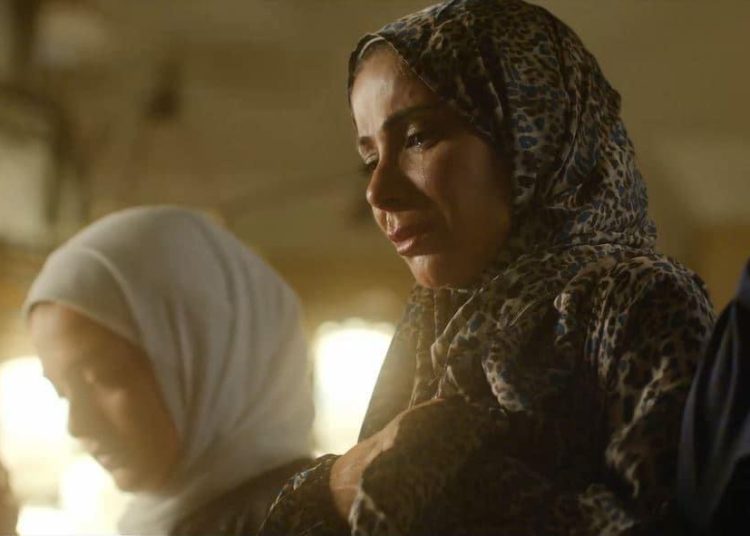When Ghada el-Saeed decides to go on the Pilgrimage to Mecca and forget about her past, she finds herself in a series of bad situations that test her faith.
At the beginning of the movie Rehla 404 (Flight 404) written by Mohamed Ragaa and directed by Hani Khalifa, Ghada (Mona Zaki) treats her mother and father rudely and aggressively. Gradually, she meets people that remind her of the sad, dark years she lived since she lost her virginity at university. Such a predicament is unforgivable in her society, so it pushed her into prostitution, but her family only needed her for her immoral earnings.
But now she is struggling to forget her past. She wears the hijab and decides to start again with a trip to Mecca. However, her plans are ruined when her mother has an accident. She tries to find people to help her with hospital bills.
She meets Shaira (Shereen Reda), her former madame, who asks her to go back to work for her for just one night.
She then accidentally meets the man who abandoned her after she lost her virginity to him. Instead of asking him for help, she is angry with him. She then decides to find her ex-husband, who is an addict. He had married Ghada only to spit his mother who betrayed his father.
Both men are called Tarek and both men hurt her and compounded her tragic experiences.
In view of all the above, we are persuaded that this repentant prostitute is not immoral one. Rather, the father and mother who knew her work and kept asking for money, the lover who left her to marry a religious woman for her father’s money, her ex-husband who didn’t forgive his mother and killed her — all of them are guilty and immoral at some point, but they still judge her, even when she decides to forget the past and repent.
The film Flight 404 does not preach, but shows human nature and its motivations. It urges the audience to avoid moral judgments or stigmatising the characters. It doesn’t show evil people as evil all the time, but it gives them an opportunity to change. It shows that they try to correct their mistakes, which makes the movie more plausible.
The dialogue, albeit rude and harsh, suits the characters, exposing their psyches, their histories and their suffering.
The acting is impressive, especially by Mona Zaki, whose creativity, originality and spontaneous performance is clearly shown in her recent work.
Also director Hani Khalifa uses visual symbols and clear references, such as the Pilgrimage journey and Ghada’s diving into the sea as a symbol of salvation and purification. Also the last scene features a narrow passage that ends with light, which is also a symbol of Ghada’s crossing over to success or salvation.
There are hundreds of black-and-white Egyptian movies about repentance, but this one is more realistic and bold as it features the inner struggles of the characters and their grappling with the situations they experience. However, the bright, happy ending may not be the best to sum up Ghada’s inner struggles.






Discussion about this post